What happens at a newspaper family reunion?
Plus, the lie I told Rich Oppel to get my first job at the Statesman.
I ran into another former boss on Saturday. Several former bosses, in fact.
A month ago, I was writing about my high school reunion and seeing people like Kim McCully-Mobley, a longtime teacher and editor in Aurora, who was my first boss at my first newspaper.
On Saturday, I attended another reunion, but this one of a different sort.
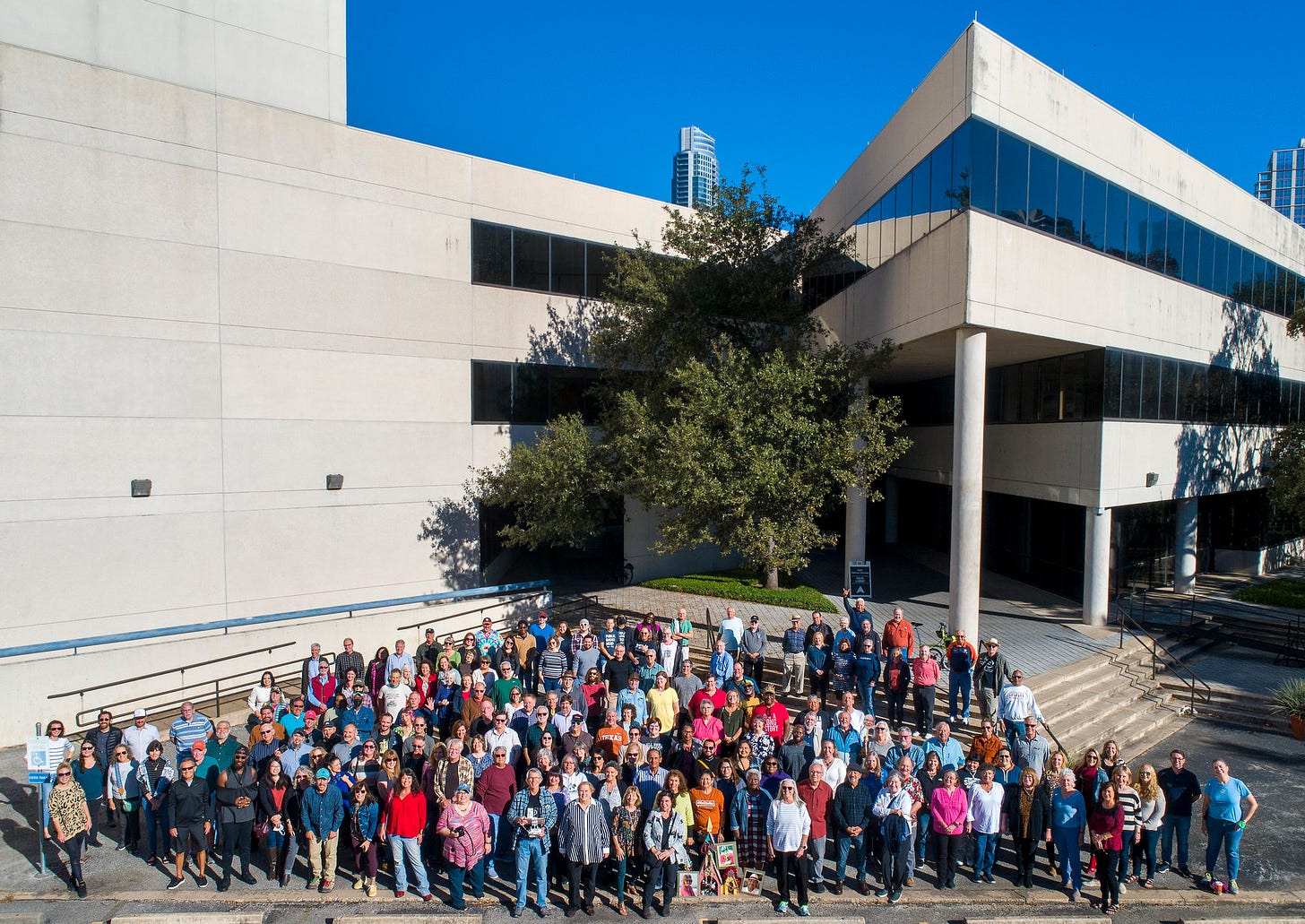
Former and current Statesman employees gathered at the building on South Congress to take a photo to commemorate the newspaper’s move away from this iconic space next to Lady Bird Lake.
I left the newspaper in June to start a new chapter of my career, but it still feels like a fresh loss. After 15 years walking up the stairs to that building — underneath the arrow-sharp corner that juts out into the sky, through the lobby, up the elevator to the second floor where stacks of cookbooks old and new guard the cubicle I left behind — I still feel at home there.
But I’ve also moved on.
That tension between staying and going is at the heart of all reunions.
Who has stayed in touch and who hasn’t? Whose day-to-day lives are still centered around this place? What did we learn here? What did we feel here? How do we manage the difficulties, disappointments and discomfort that come with personal and professional evolution? How do we wear our changes? How do we talk about our lives today with reverence for what was while also acknowledging that we are no longer the people we were then?
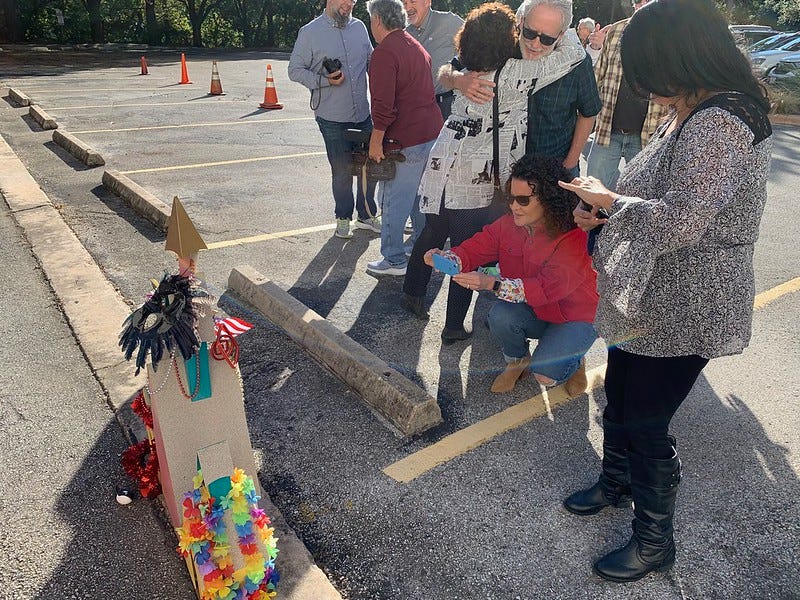
It’s amazing to me that I’ve been so interested in this subject that I created a whole dang podcast about it.
And that I keep finding myself in situations that certainly qualify as “reunions” and that each encounter shapes my own answers to these questions.
COVID-19 is certainly one reason why these gatherings have taken on a “reunion” feel. We’ve all been so separated from our normal lives that, now that we are in Stage 2 and are widely vaccinated, people are coming together, often for the first time in 18 months, 2 years or longer.
But this gathering at the Statesman bore other scars.
Memories of working together on 9/11. (I wasn’t in Austin then, but I was working at another paper in Missouri. I’m still in touch with the journalist I spent the day with for no other reason that we spent Sept. 11 together.)
The economic crisis of 2008 that caused the first round of buy-outs.
The lingering financial problems in the media industry that caused another round of buy-outs in 2011.
I witnessed four buy-outs in all by the time I left the paper in summer of 2021, and each reduction in staff felt a wave of deaths, but without anyone actually dying.
Many of those staffers went on to find other jobs that fulfilled them in new ways, but Statesman folks would probably agree that there was something special about this particular place.
I think that has to do with the nature of running a daily newspaper more than the particular environment at the Statesman, which for many years felt like a semi-dysfunctional family whose members were in a state of collaboration or collusion.
Lots of folks married or dated. We had spats and feuds and life-changing conversations. (Alberto Martinez telling me I should I apply for the food writing job. Sandra Kleinsasser responding to news of my unplanned pregnancy with pure enthusiasm.)
Because of the nature of the news business, you never knew if you were going to see a drama or a comedy.
When the random bombings in Austin happened or a newsroom in Baltimore became the site of a mass shooting, my mental health suffered because of where I worked.
When I saw columns published under my name or wrote about people who were changing the city for the better or I spoke to a classroom of young journalists, my mental health improved because of where I worked.
I got there in time to remember when my fellow copy editors and I would meet up for happy hour at 10 p.m. after our second shift ended, closing down the Tiniest Bar in Texas when it wasn’t completely enveloped by condo buildings.
But by the end of my time there, we were struggling to have any kind of newsroom-wide connection. The pandemic played a big part in that, but I think it was so much more than that. We weren’t having virtual or socially distanced gatherings with everyone in the same space. All those buy-outs left us doing extra jobs with less pay.
The formation of the Austin NewsGuild kept me engaged with my colleagues on a deeper level during my last year at the newspaper, but not everyone in the newsroom was on board with the organizing effort, so that added to the tension.
These were some of the things on my mind when all these familiar and not-so-familiar faces came together for the photo on Sunday.
I was so happy to see Ed Crowell, who was my first food editor (and whose book is what brought Frank and I together — that’s a kismet story to tell on another day). It put a smile on my face to see Larry Hobbs, our perpetually good-humored photo technician, and Larry Kolvoord, a veteran photographer whose warmth could keep the whole newsroom feeling at ease.
I saw Jay Janner, another photographer whose work continues to carry the newspaper. And Ricardo Brazziell, one of the other few remaining longtime photographers who recently had a seizure so strong that it broke both of his shoulders.
I saw Sharon Chapman, Michael Barnes, Peter Blackstock, Eric Webb and Deborah Sengupta-Stith, my former features colleagues who are all still carrying on their excellent work in the lifestyle department.
I miss them, and I’m glad I didn’t miss this opportunity to see them and so many other people who made a difference in my life.
Lastly, I want to share a photo and a story about my other first boss, Rich Oppel, who was my first Big Boss. You know, the Guy Who Ran The Show, not at a student newspaper or a small town newspaper but at a Big City Newspaper.
I don’t have that many memories of Rich, except for one pretty remarkable one that happened during my daylong interview back in January of 2006.
I was applying for a part-time copy editing job. A year into the future, I would be having my first child. Two years into the future, I would appear on “What Not to Wear.” Three years into the future, I’d have my face on a billboard.
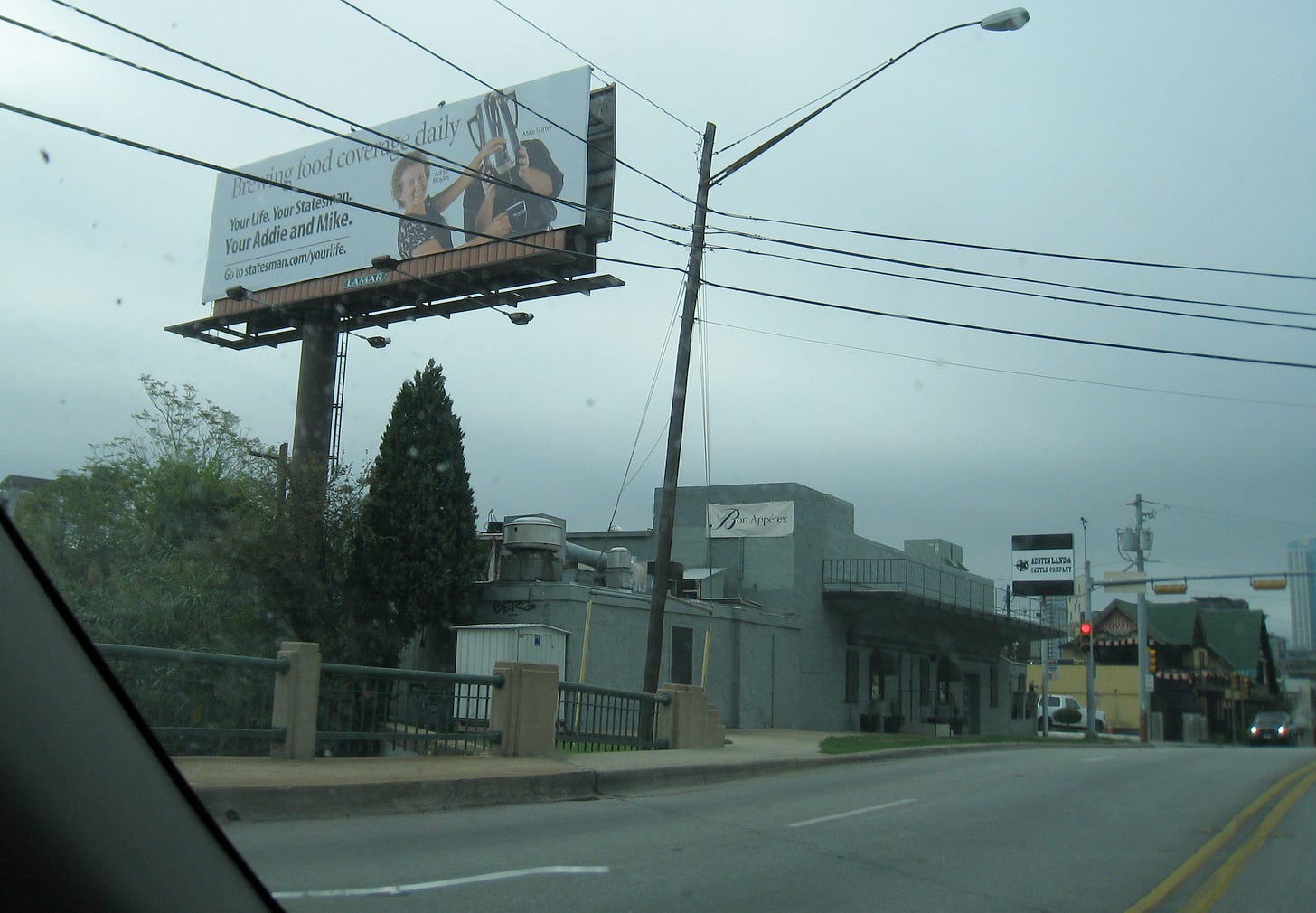
But this day — I think it was maybe a Tuesday — I was meeting with staffers and taking a copy editing test and otherwise proving my mettle.
And that meant a 30-minute conversation with Rich, an old school journalist whose career started in the 1960s and is notable enough to have a Wikipedia page. I’m sure I told him about living in Spain and working at The Maneater and Texas Monthly, and I know he must have seen me light up talking about magazine writing.
“This is all great, but I wonder if you’re really all that committed to daily print journalism,” he said. (I’m paraphrasing, but I think this is a pretty close to his direct quote.)
He was questioning if I was going to use the Statesman as a stepping stone to get somewhere else. Somewhere with deadlines that weren’t quite so tight. Somewhere with a cushy budget and expense accounts.
Somewhere people stay for four decades because they don’t experience death by a thousand paper cuts.
That day, I lied to him.
I *did* have my eye on magazines. I wanted to work in New York. I wanted a journalism job that would pay for me to travel around the world. I knew I wasn’t done with TV and radio.
But I told him that daily print journalism was all that I wanted.
I don’t know if he believed me, but he hired me anyway.
When I saw him at the group photo on Saturday, I don’t know if he remembered that conversation, but I certainly did.
And as I’ve watched him take numerous leaps of faith in his own career (since his retirement from the Statesman in 2008, he has since helmed Texas Monthly and started a digital news start-up), I don’t think he’s surprised in the least to watch my career take several unexpected twists and turns.
I think he saw something in me that day that he saw in himself.
A person who has a great commitment to their community and to their own experience within it.
A person who loves trying new things.
A person who uses history to inform the future.
A person who is shaped by her past but not defined by it.
Thanks, Mr. Oppel, for the opportunity to prove you wrong.
And to prove you right.
I *did* want to do other things than work at a daily newspaper.
Now that I am, I miss it like hell.
And I don’t have any regrets.
Including that fib I told you all those years ago.
_____________________________________________________
Happy Monday, Substack subscribers! Thanks so much for your support of this newsletter. I hope today’s email finds you well and with a large stash of Halloween candy that you can nibble on all week long.
I’ve got another Texas Monthly story I’m working on this week, which you’ll be hearing about soon, and I’m still buzzing from the Field Guide Festival over the weekend, which I hope to write about on Substack soon.
But first, I’m determined to finish these last two episodes of “Class Reunion: The Podcast!” We’re down to the home stretch, and these final episodes are so juicy that I’m trying not to rush their production. If you haven’t heard any of the episodes, you can find the podcast on Spotify and Apple.
If you *have* heard the show, thank you! It’s fun to hear from listeners who listen to the podcast and hear parts of their own experience, even if they didn’t grow up in a small town or the Midwest.
“Coming home” seems to be a universal theme of my work this year, which really fills my heart.
See you soon!
Addie
P.S. Yes, I’m still doing tarot and ancestral healing sessions! Don’t Fear the Death Card is going strong with events, 1:1 and group sessions. Check out dontfearthedeathcard.com if you want to learn more or sign up.



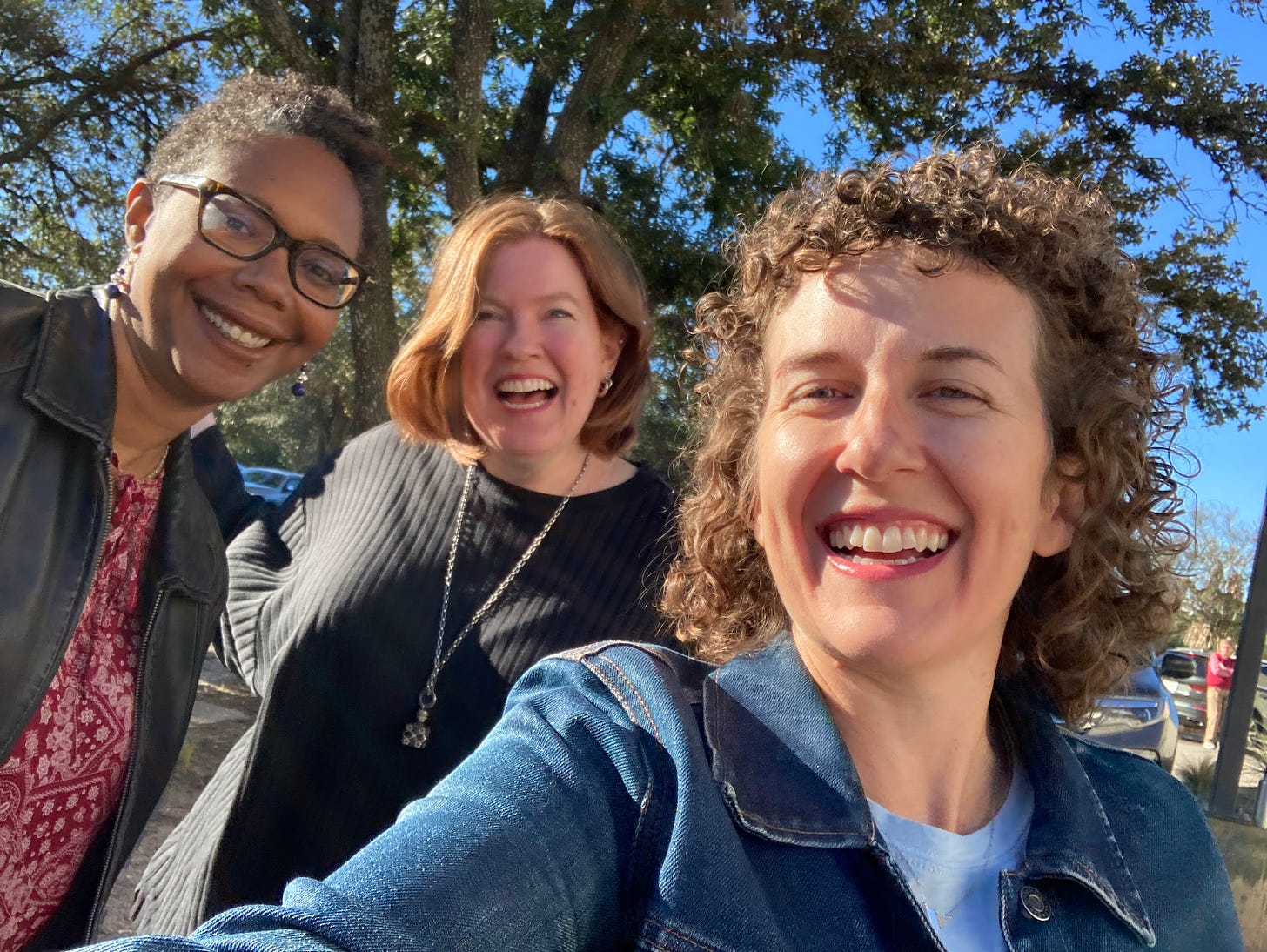

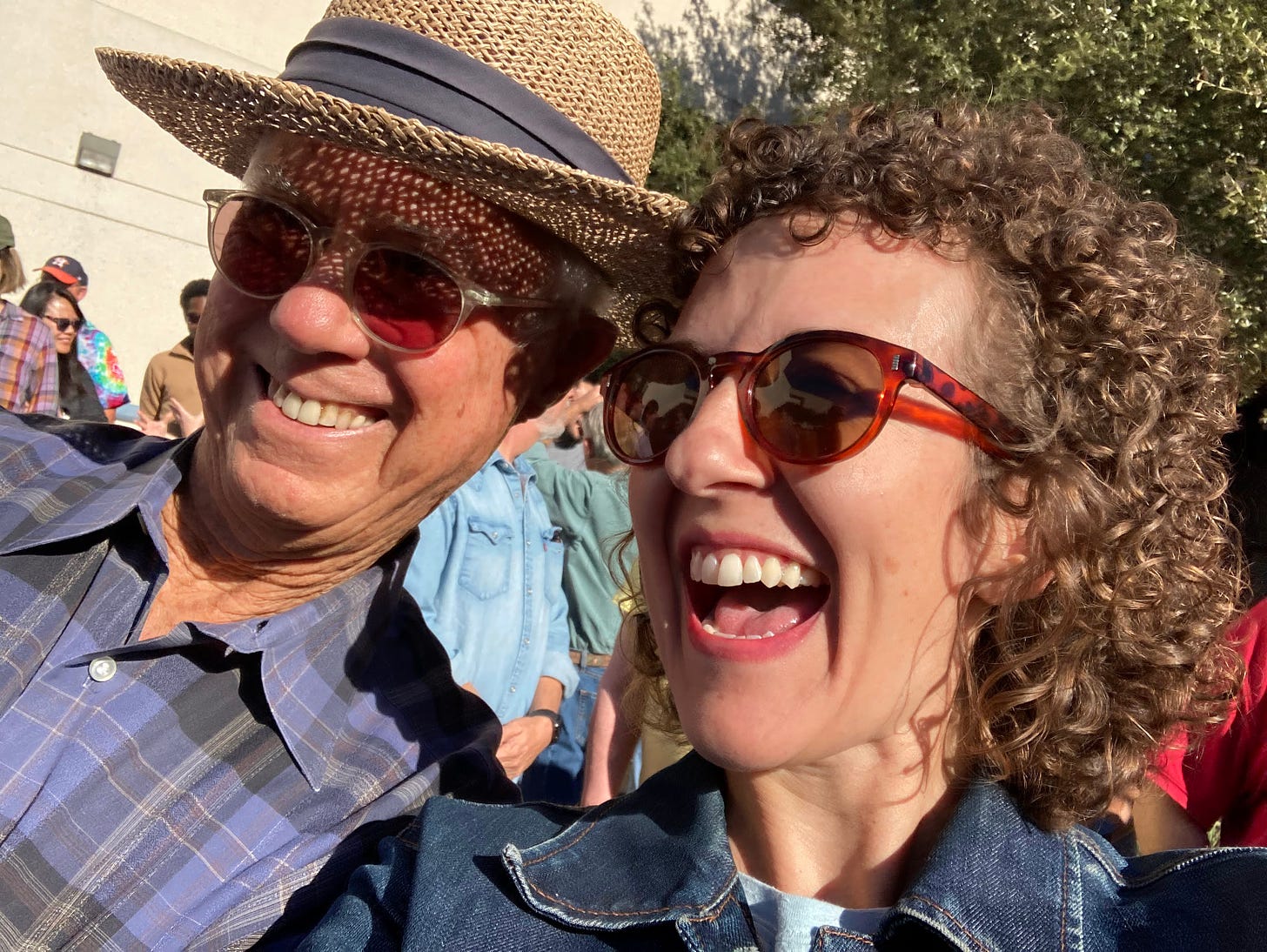
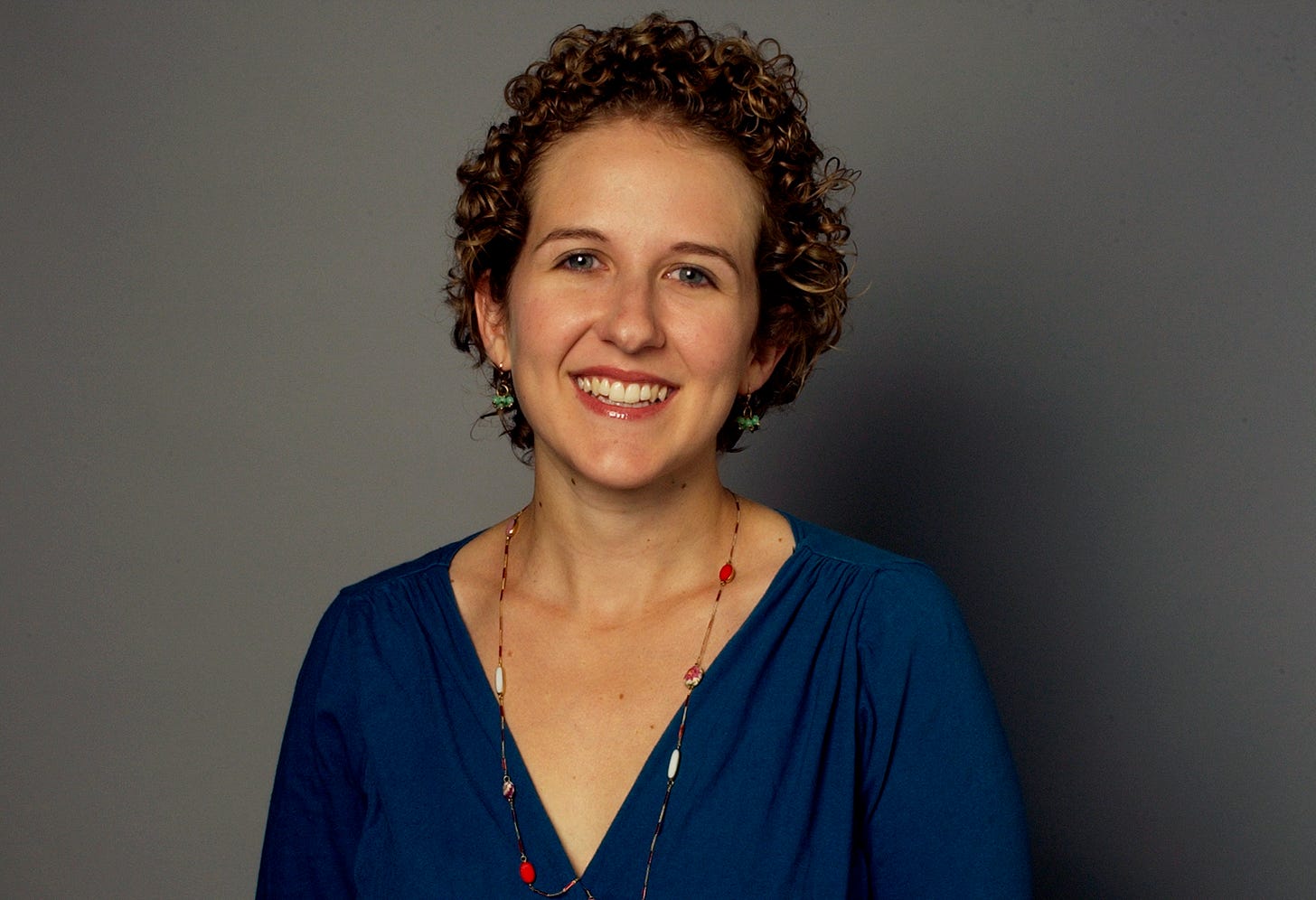
sitting here in Brooklyn I always enjoy reading your take on life. For me you represent a little of what is gone from the Austin I lived in, I read the Statesmen everyday for 32 years. I read it mostly for the columnists, they were Austin. You, Kitty, John Kelso, Ken Herman, Kirk Bohls. I never got over Ben Wear leaving. I don't hunt or fish but I enjoyed every column Mike Legget wrote and still writes off and on.
I read the New York Times every Day, have for 40 years. I read the times for the sections, Science on Tuesday and Food on Wednesday and so on. But My paper, the Austin American Statesman I read for the writers that wrote about where I lived. That is what I now miss. I am sure that is a lot of what people you talked to at the reunion miss also.
Keep it up I look forward to your columns.